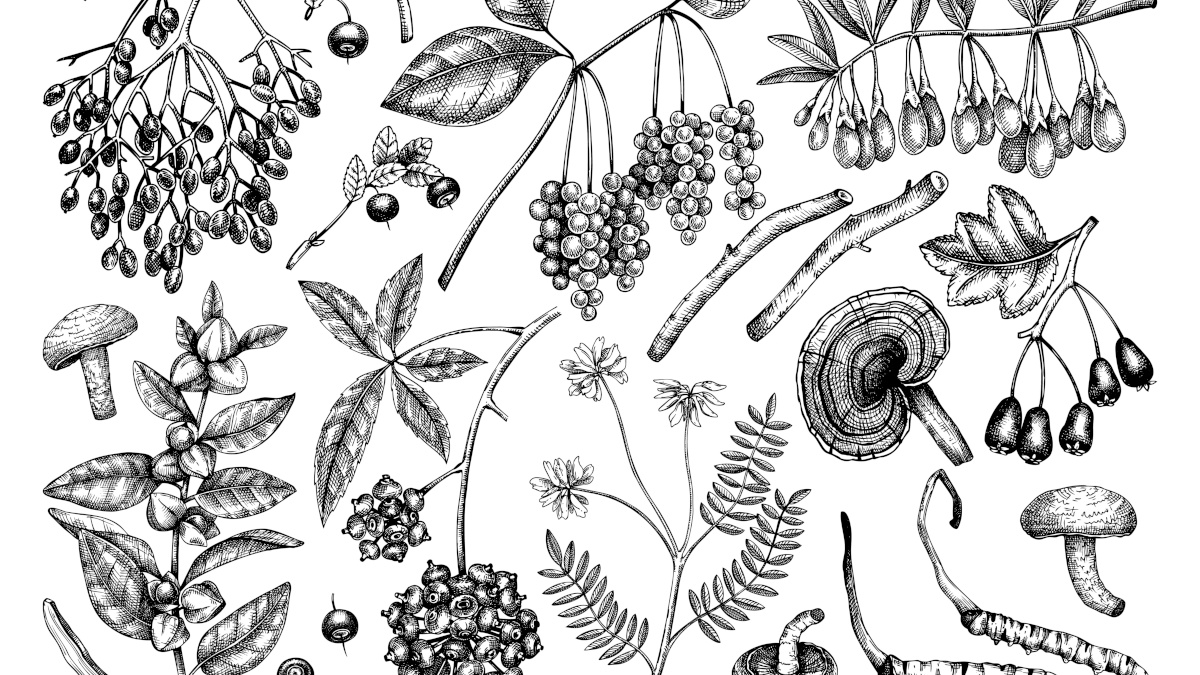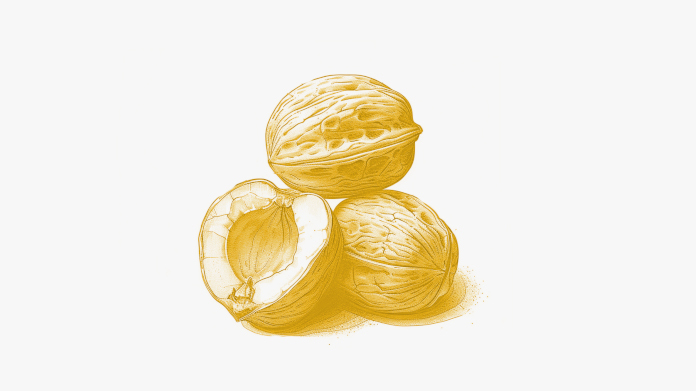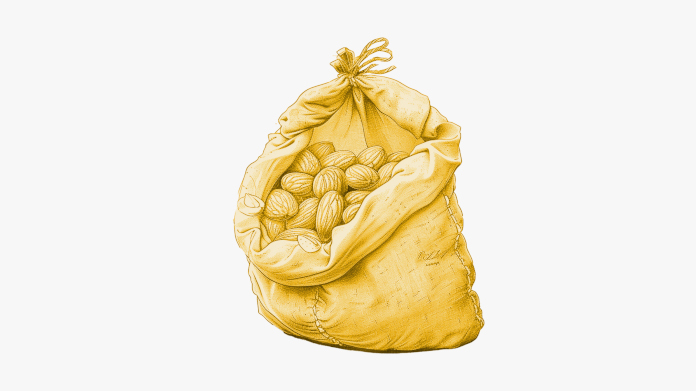
Adaptogenic plants: recent evidence supports these age-old natural remedies
From the Andes Cordillera and the mountains of Tibet to the Ganges plain and the Siberian steppes, plants have been used for thousands of years for their ability to increase energy levels, and boost resistance to high altitudes, stress and hormone problems. These plants help to re-establish balance by making the body both stronger and more relaxed.
It was only in the 1940s, however, that while researching ways of boosting the physical and cognitive abilities of USSR soldiers and workers, Russian scientist Nikolai Lazarev, discovered the benefits of Schisandra chinensis and formalised the concept of adaptogenic plants (1).
Since these early discoveries, the concept has spread across the globe, with a concomitant increase in scientific research (more than a thousand studies have been conducted on adaptogenic plants over the last 60 years), with the following definition now widely-accepted (2).
An adaptogenic plant is one which:
- induces in the body a non-specific state of increased resistance to various types of aggressor (physical, chemical or biological);
- has a normalising effect, regardless of the particular change from the physiological norm;
- demonstrates an absence of toxicity and adverse effects on the body’s normal functions.
Here are the 8 best adaptogenic plants as identified by the European Food Safety Agency (EFSA).
Schisandra chinensis: the gold-standard adaptogen
A long, twining and particularly hardy vine that grows in wooded areas, Chinese schisandra (Schisandra chinensis) has been used for thousands of years both in cooking and in traditional Chinese medicine.
Also known as 5-flavor-fruit (its berries being simultaneously sweet, salty, bitter, sour and spicy), Indian ginseng or vitality fruit, Chinese schisandra was notably used as a sex stimulant, for boosting libido, as well as for improving physical and cognitive performance, and for combatting insomnia and stress.
In short: it perfectly embodies the notion of the adaptogenic plant; indeed, it’s the very plant Nikolai Lazarev was studying when he formalised the concept.
However, it was only in 1951 that the adaptogenic benefits of Schisandra chinensis were found to come from a specific active ingredient called schisandrin and its derivative gamma-schisandrin, as well as from its many lignans (gomisin A, B, C, D, E, F).
These lignans are believed to protect tissues (especially in the skin, brain, heart, kidneys and liver) against oxidative stress by, in particular, boosting the function of glutathione (3).
In addition to its adaptogenic benefits, Schisandra chinensis:
- supports good respiratory health;
- and has liver-protective effects.
The many benefits of this ‘fruit of vitality’ are thus now available in the form of dietary supplements (such as Schisandra Chinensis, standardized to 9% schisandrin).
Ashwagandha (Withania somnifera), perfect for combatting stress
A cornerstone of the traditional Indian pharmacopoeia, Withania somnifera is a robust plant which can grow in even the driest regions of Pakistan and Sri Lanka. In Sanskrit, ashwagandha means ‘smell of horse’, reflecting the odor emitted by its roots.
Known as ‘healing leaf’ in Yemen, ashwagandha also meets the criteria for an adaptogenic plant. It was actually used in Ayurvedic medicine as a multi-purpose remedy for insomnia, stress, arthritic inflammation, anxiety, respiratory problems, etc.
Following the identification of its most important active principles (withanolides, aspartic acid, glycine, tyrosine, alanine, proline, tryptophan, glutamic acid, cysteine... as well as numerous flavonoids), several patents were filed relating to ashwagandha’s potential for improving the response to mental health problems (4).
Ashwagandha supports, in particular:
- mental health and relaxation;
- cardiovascular health.
That’s why you’ll find Withania somnifera featured in dietary supplements (such as Super Ashwagandha).
The piquant benefits of Piper longum
A vine originating from India, long pepper (Piper longum) is a key plant of Ayurvedic medicine, with tiny seeds contained in hazelnut-like catkins.
Long pepper is traditionally used in India for its numerous benefits, including those of boosting the body’s resistance to stress, relieving respiratory problemsand supporting the digestive system
These effects are thought to be due to its piperine content, an alkaloid responsible for the piquant nature of Piper longum and which has a positive effect on a number of the body’s functions (5).
Ginseng, Chinese medicine’s star adaptogen
A supreme plant of traditional Asian pharmacopoeia (Chinese, Korean, Indian), ginseng is part of the botanical genus Panax, a Greek word meaning ‘all-healing, panacea’. Indeed its adaptogenic properties were known about long before Nikolai Lazarev’s discoveries.
However, recent research has shown that ginseng’s benefits are due to the plant’s active principles, ginsenosides, though their mechanisms of action have yet to be established by scientists (6).
Ginseng supports:
- mental health, intellectual performance and cognitive function;
- immune health;
- sexual health;
- physical performance;
- glucose metabolism;
- and vitality as a result of its anti-fatigue benefits.
In short: ginseng is without doubt a key adaptogen and dietary supplement no home should be without (try the product Ginseng 30%, standardized to 30% ginsenosides).
Sea buckthorn corresponds well to many of the body’s needs
A spiny shrub from the Elaeagnus family, the berries of which are normally edible and widely used in forest gardens, sea buckthorn (Hippophae rhamnoides) grows in temperate regions in Europe and Asia.
The edible, tart fruits of the sea buckthorn shrub, rich in vitamin C (5 times higher than kiwi fruit), as well as in vitamins A, E, F and P, have been consumed for at least 1200 years in Europe, China and Russia for their de-worming, tonic, anti-infection, and wound-healing benefits, particularly burns, etc. (7)
Sea buckthorn supports:
- the body’s natural defenses;
- skin health;
- cardiovascular health;
- digestive health.
Its benefits are thus very well matched to the body’s needs, making it a natural choice for supplementation (try, for example, Sea Buckthorn Extract, sea buckthorn oil in softgel form).
Eleutherococcus senticosus also known as Siberian ginseng
A particularly hardy bush from Siberia and Asia, bearing clusters of black berries, eleutherococcus is known as Siberian ginseng because of its adaptogenic properties: indeed it was consumed by athletes from the former Soviet Union, though its traditional use dates back more than 4000 years.
Eleutheroside B, an antioxidant and antimicrobial syringin, is thought to be its most powerful active principle. In particular, the plant supports:
- the immune defenses;
- and physical and mental performance (8).
The most potent pro-immunity adaptogen: astragalus
A perennial plant from the Fabaceae family (which also includes lentils and chickpeas), astragalus is a small leguminous plant from China bearing clusters of yellow flowers, of which there are more than 2500 species.
Astragalus root has been used in traditional Chinese medicine for thousands of years for its immune-stimulant and anti-inflammatory benefits. Its many virtues are believed to be due to its high content of polysaccharides, a type of fibre that stimulates immunity in the gut (9).
Astragalus supports:
- cardiovascular health;
- physical and mental well-being;
- supple, healthy skin;
- sperm motility;
- immune health.
These adaptogenic properties and multiple benefits make astragalus the perfect dietary supplement (try, for example Astragalus Extract).
The virtues of golden root (Rhodiola rosea)
Arctic root, golden root, roseroot: Rhodiola rosea is a small succulent from the Crassulaceae family, the name of which comes from the rose-like smell that emanates from its roots. It is primarily found in Siberia and Scandinavia.
People in these regions have long attributed it with multiple health benefits: physical endurance, longevity, sexual vigour, memory, etc, all of which make it another excellent example of an adaptogenic plant.
In fact, rhodiola is rich in rosavin and salidroside, two glycosides that act on the nervous system but which also offer a number of bioactive effects (10).
Rhodiola supports:
- the nervous system;
- heart health;
- digestive health;
- physical performance;
- and mental and cognitive performance.
Like all the adaptogenic plants listed by the EFSA, rhodiola is an excellent choice as a dietary supplement (you can find it in capsule form, standardized to 5% rosavin and 1.8% salidroside, in the supplement Rhodiola rosea).
Which synergistic formulations should you choose?
To gain maximum benefit from these adaptogenic plants with recognized properties, you can, of course, opt for synergistic formulations in which they are combined for optimal effects:
- astragalus, schisandra and Rhodiola rosea can, for example, be used in synergy with other natural remedies such as reishi, ginseng, ashwagandha and goji berries – perfect for delivering calming effects while also supporting immunity (this is the combination offered by the supplement Adaptix;
- an adaptogenic blend based on holy basil, astragalus, chaga, reishi, turmeric, ginger, etc. constitutes an excellent Ayurvedic remedy for boosting energy and vitality, especially during periods of fatigue and stress (as offered by the product Adaptogenic Potion);
- and finally, eleutherococcus, rhodiola and maca, complemented by magnesium, vitamin C and zinc, is a highly effective combination for helping you to relax and cope better with stress (try, for example, a course of Adrenal Support).
References
- PANOSSIAN, Alexander et WAGNER, Hildebert.
- Brekhman II. Eleutherococcus in Russian. Leningrad, Nauka, 1968:1-168
- PANOSSIAN, Alexander et WIKMAN, Georg. Pharmacology of Schisandra chinensis Bail.: an overview of Russian research and uses in medicine. Journal of ethnopharmacology, 2008, vol. 118, no 2, p. 183-212.
- GUPTA, Girdhari Lal et RANA, A. C. Withania somnifera (Ashwagandha): a review. Pharmacognosy Reviews, 2007, vol. 1, no 1.
- ZAVERI, Maitreyi, KHANDHAR, Amit, PATEL, Samir, et al.Chemistry and pharmacology of Piper longum L. International journal of pharmaceutical sciences review and research, 2010, vol. 5, no 1, p. 67-76.
- NG, T. B. Pharmacological activity of sanchi ginseng (Panax notoginseng). Journal of Pharmacy and Pharmacology, 2006, vol. 58, no 8, p. 1007-1019.
- SURYAKUMAR, Geetha et GUPTA, Asheesh. Medicinal and therapeutic potential of Sea buckthorn (Hippophae rhamnoides L.). Journal of ethnopharmacology, 2011, vol. 138, no 2, p. 268-278.
- DAVYDOV, Marina et KRIKORIAN, Abraham D. Eleutherococcus senticosus (Rupr. & Maxim.) Maxim.(Araliaceae) as an adaptogen: a closer look. Journal of ethnopharmacology, 2000, vol. 72, no 3, p. 345-393.
- FU, Juan, WANG, Zenghui, HUANG, Linfang, et al.Review of the botanical characteristics, phytochemistry, and pharmacology of Astragalus membranaceus (Huangqi). Phytotherapy Research, 2014, vol. 28, no 9, p. 1275-1283.
- PANOSSIAN, Alexander, WIKMAN, G., et SARRIS, Jerome. Rosenroot (Rhodiola rosea): traditional use, chemical composition, pharmacology and clinical efficacy. Phytomedicine, 2010, vol. 17, no 7, p. 481-493.
5 Days
Great products and fast shipping!!’
Great products and fast shipping!!’
Phu Nguyen
7 Days
The curcumin really helps my arthritis!
The curcumin really helps my arthritis!
BLANCO Judy
7 Days
Broken pills
One of the supplements I got from your company has alot of pills that where broken. Otherwise shipping is great! Orders are shipped in a timely manner.
Deborah
9 Days
Good website
Good website, fast delivery, great product.
Sharon Feyhl
21 Days
good value
ease of ordering, well described products, short delivery time
richard sears
21 Days
Bioperine
Product works as advertised and the delivery time was excellent.
JEFFREY
22 Days
SuperSmart is where I look first for quality supplements
SuperSmart's supplements have always been top-notch for both me and my husband. I recommend this company for the best quality supplements. Whenever I have a health issue that I want to address with supplements, I go first to SuperSmart and look under the health topic supplements category and start looking there first for how to address whatever I need. Can't go wrong with SuperSmart.
Diane
23 Days
You have what the doctor can’t do for…
You have what the doctor can’t do for me Lower de prolactin I am very happy You change my life.!
MENDOZA Mirna
26 Days
Your products are good
Your products are good. You just need to change the way people purchase. Give customers the option of being a guest purchaser.
Grace Jordan
28 Days
Prompt and accurate service.
Prompt and accurate service.
Cecelia Grosholz
28 Days
Very happy customer
The supplements I have purchased from Supersmart have helped me enormously. Their products are well-priced compared to other brands. My order of H. Pylori Fight Advanced Formula arrived yesterday. I have not used this before, but I am hopeful this will be another positive experience.
C Sara
30 Days
KEEP SEARCHING
The knowledge of knowing by reading what is available to us.
DOMINIC
33 Days
Their products are excellent!
Their products are excellent. I highly recommend SuperSmart for all supplementation needed.
LAZO Renata
35 Days
great website
great website, good products fast, easy checkout
Vivian
36 Days
Fast and efficient service as always
Fast and efficient service as always
OOMEN Robert



